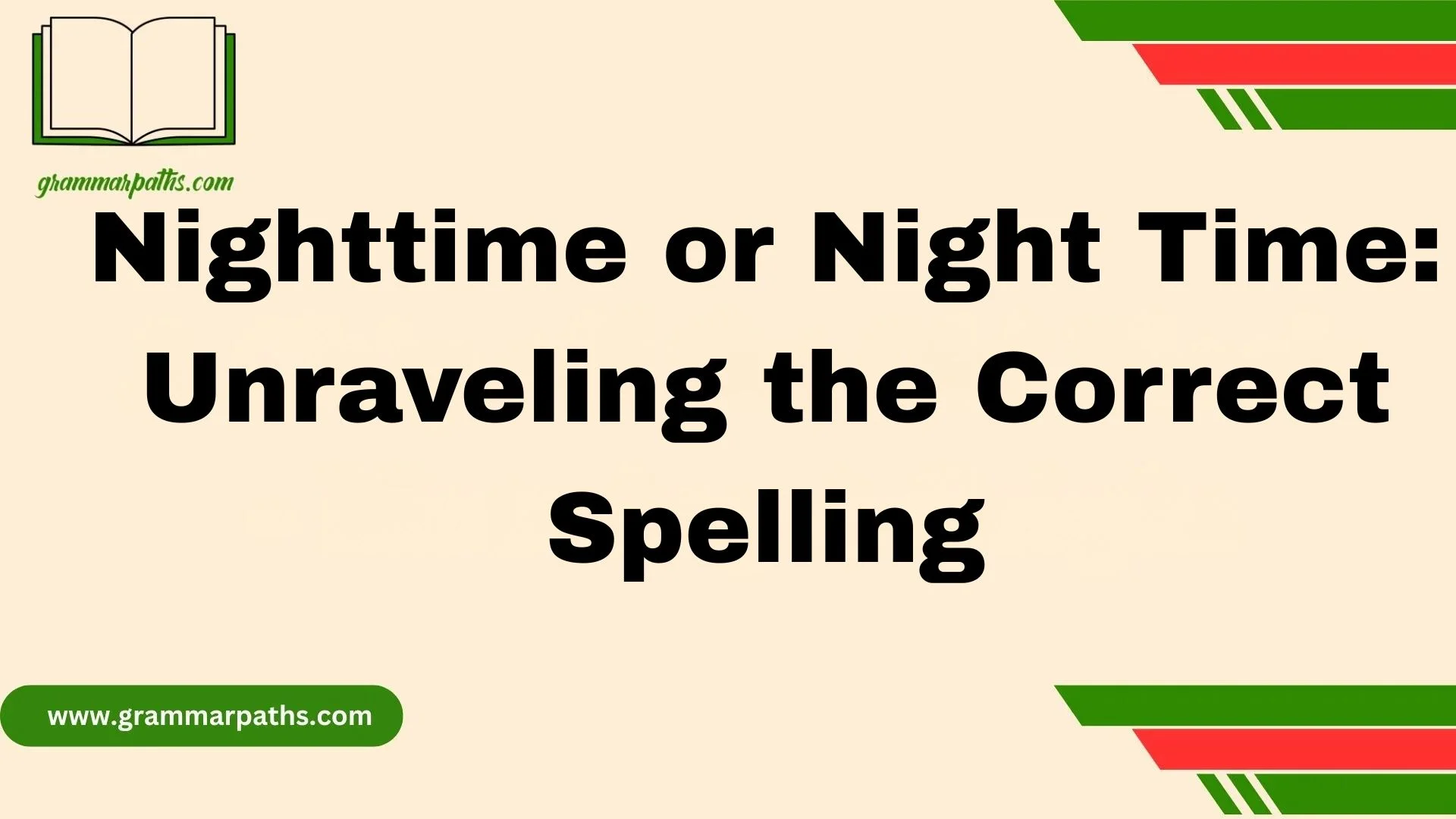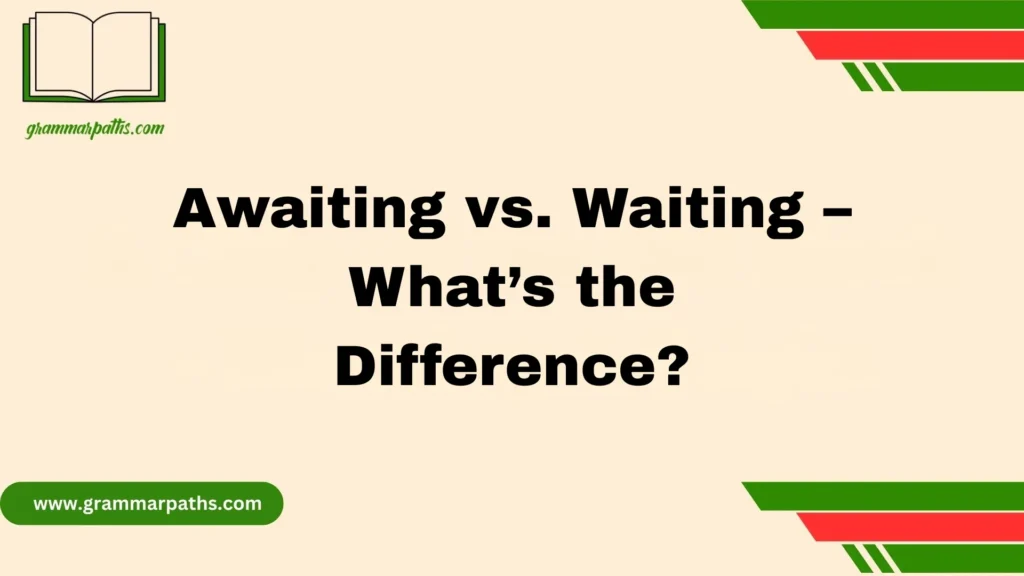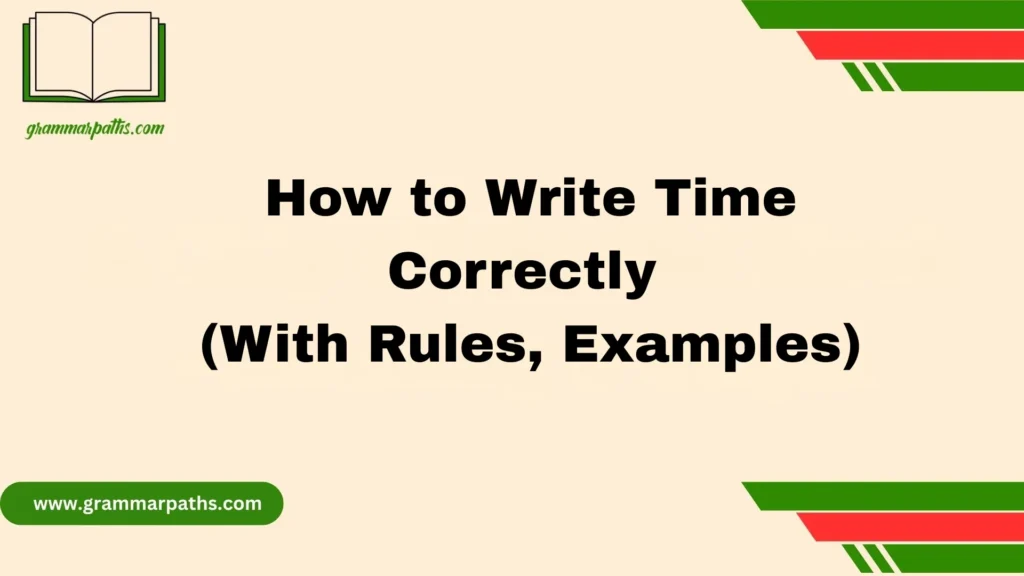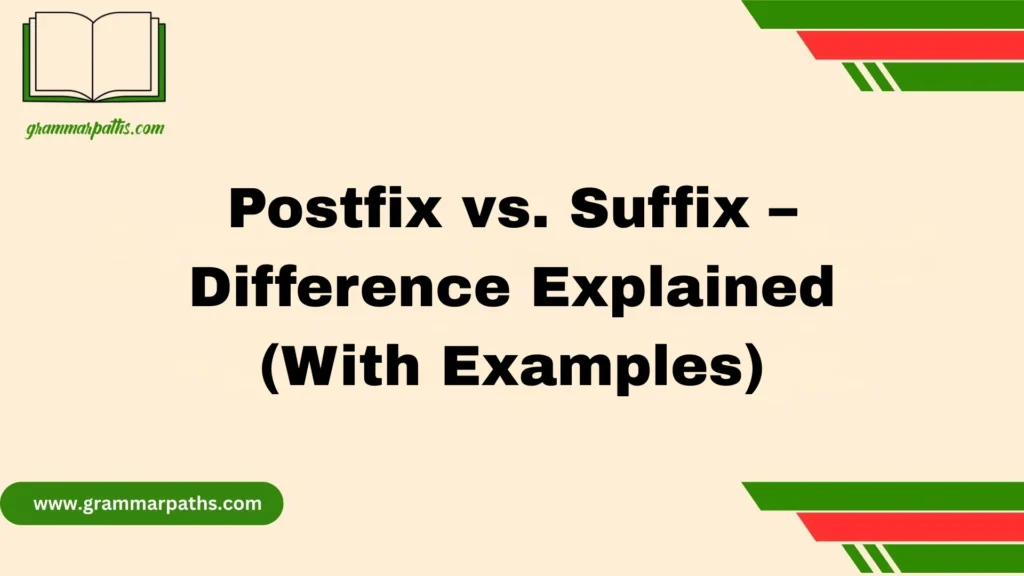When it comes to writing or speaking, many people get confused about whether to use nighttime or night time. Both forms appear often, but they are not always used the same way. Understanding the difference can make your grammar and spelling more accurate. In simple terms, nighttime is the correct single-word form when referring to the period between sunset and sunrise. On the other hand, night time as two separate words is less common and usually considered less formal.
The word nighttime is often seen in literature, poetry, and everyday English to describe the hours of darkness. It is widely accepted in American English as the standard form. However, in some cases, people may still write night time to emphasize the time of night or for stylistic reasons. Knowing which version to use can improve your writing style, whether for academic work, business communication, or casual conversation.
Understanding the Basics: One Word vs. Two Words
The core question is whether “nighttime” should be treated as one closed compound word or whether “night time” should remain two separate words.
- Nighttime (one word): Functions as a noun meaning the period of night. Example: She enjoys reading during the nighttime.
- Night time (two words): Historically more common, but now largely replaced by “nighttime.” Example: In old poetry, you may read about “the night time.”
To understand why this shift happened, it helps to look at how English words evolve.
Closed vs. Open Compounds
English often merges words over time. For instance:
- Day time → daytime
- Any time → anytime
- Every day → everyday
This same process turned “night time” into “nighttime.” The single word spelling reflects modern usage, especially in American English.
Historical Development of the Term
English didn’t always have standardized spelling. In older texts, you’ll frequently see “night time” as two words. Over the centuries, the hyphenated form “night-time” emerged, and finally, the closed compound “nighttime” became the dominant form.
Timeline of Use
- Middle English (1200s–1500s): Writers used “night time” in poetry and stories.
- 1700s–1800s: Hyphenated form “night-time” appeared in British writing.
- 1900s onward: “Nighttime” became common in American English, especially in dictionaries and educational texts.
This evolution mirrors other compound words. Just as “day time” shifted to “daytime,” “night time” merged into “nighttime.”
What Dictionaries and Style Guides Say
When in doubt, it’s smart to check trusted references. Major dictionaries and style guides provide consistent answers:
| Source | Preferred Form | Notes |
| Merriam-Webster | nighttime | Lists “nighttime” as standard noun |
| Oxford English Dictionary | night-time / nighttime | Notes historical two-word form |
| Cambridge Dictionary | night-time (UK), nighttime (US) | Shows regional preference |
| Collins Dictionary | nighttime | Identifies as standard noun |
| AP Stylebook | nighttime | Preferred in journalism |
| Chicago Manual of Style | nighttime | Treats as compound noun |
| MLA Handbook | nighttime | Encourages one-word spelling in academic writing |
Key takeaway: If you’re writing for an American audience or academic setting, “nighttime” is the correct spelling. British writers may still encounter “night-time,” but even there, the one-word spelling is gaining ground.
Usage Trends in American vs. British English
Spelling often splits along regional lines.
- American English: Strongly favors “nighttime.” It appears in literature, media, and academic writing.
- British English: “Night-time” (hyphenated) still occurs, though “nighttime” is increasingly common. The unhyphenated two-word “night time” is mostly archaic or poetic.
Google Ngram Viewer Data
Analysis of published works shows “nighttime” rising in the 20th century, especially in American publications. “Night time” peaked in the 1800s but has steadily declined since. This shift reflects how compound nouns consolidate over time.
Grammatical Function of “Nighttime”
Grammatically, “nighttime” works as both a noun and an adjectival modifier.
As a Noun
It represents the period of night.
- Nighttime brings cooler air after a hot summer day.
- Most crimes happen during the nighttime.
As a Modifier
It can describe activities, habits, or qualities associated with night.
- Nighttime routine
- Nighttime safety
- Nighttime economy
The ability of “nighttime” to shift roles makes it versatile and widely accepted.
Common Mistakes and Misconceptions
Even experienced writers stumble over this term. Here are the most frequent errors:
- Using “night time” in formal essays: While not technically wrong, it feels outdated. Professors and editors expect “nighttime.”
- Hyphenating incorrectly (“night-time”): Still seen in British writing, but fading in American English.
- Mixing both forms in the same piece: Creates inconsistency and lowers credibility.
Pro tip: Always pick “nighttime” and stick with it across your document.
Real-World Usage Examples
Examples clarify how these forms appear in authentic writing.
- “The city never sleeps, and the nighttime lights shine brightest in New York.” — Modern journalism
- “She dreaded the nighttime hours, when the forest grew silent.” — Fiction writing
- “In olden days, travelers avoided the night time, fearing dangers after dark.” — Historical writing
The first two use “nighttime” in the modern sense, while the third demonstrates the dated two-word form.
Practical Guidelines for Writers, Students, and Professionals
So when should you use “nighttime” and when (if ever) should you consider “night time”?
- Use “nighttime”
- Academic papers
- Business reports
- Journalism and blogging
- Creative writing
- Use “night time” only if
- You’re quoting a historical source
- Writing poetry that relies on the two-word structure
- Following British style with a specific hyphenated form (“night-time”)
Rule of Thumb
- For almost all contexts: “nighttime” = correct
- For rare poetic or historical contexts: “night time” may appear, but avoid it in formal writing
Conclusion
The choice between nighttime and night time often depends on context, style, and preference. While nighttime (one word) is the more common and accepted form, especially in American English, the two-word version night time is still sometimes used for emphasis or stylistic variation. Both forms refer to the same period — the hours of darkness between evening and morning. By understanding the distinction, you can ensure your writing remains clear, professional, and grammatically correct. Whether in academic writing, creative expression, or everyday communication, knowing when to use nighttime vs. night time can make a difference in tone and accuracy.
FAQs
Q1: Which is correct – nighttime or night time?
Both are correct, but nighttime is more widely accepted and commonly used in formal writing.
Q2: Is nighttime one word or two?
The standard form is nighttime (one word). Night time (two words) is less common and more stylistic.
Q3: Is there a difference in meaning between nighttime and night time?
No, both mean the same: the hours of darkness between sunset and sunrise.
Q4: Which form is used more in American English?
Nighttime is preferred in American English.
Q5: Can I use night time in British English?
Yes, night time may appear more in British English, but nighttime is still widely understood.

Mia Rose is the passionate writer and founder of GrammarPaths.com, a resource dedicated to helping learners master English grammar, idioms, and writing skills with ease. With a deep love for language and years of experience in teaching and content creation, Mia simplifies complex grammar rules into clear, practical guides that readers can instantly apply.










